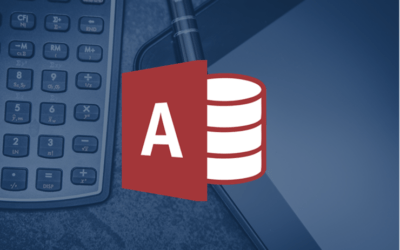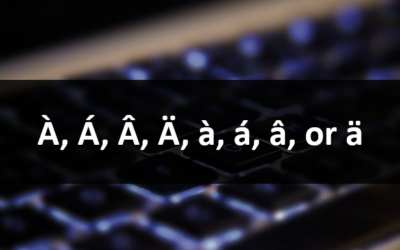Microsoft Access: Upgrading to Access 2013
Microsoft Access Training Series | Level 3
Course Details
Duration: 1 day
Microsoft® Access® Version: 2013
Delivery Methods: Instructor-led classroom (ILC) | Virtual classroom (VC) on request
Course Dates: Contact us to arrange a date. | View schedule ![]()
Course Fee: Custom training rates apply.
Note: Public scheduled dates for this course are delivered as live instructor-led classroom training.
Course Overview
During this hands-on course, students will explore exciting new features available in Microsoft Access 2013. The course will start with customizing the Ribbon and the Quick Access toolbar and will then will examine new interface enhancements including improved search functionality, relational data dialogs and navigational changes. Other powerful Access 2013 features will be explored including building and sharing web app databases.
Prerequisite: Introduction to Access 2003, 2007 or 2010 or equivalent knowledge and skills.
Custom training: This course may be delivered at your site or ours as an instructor-led or virtual classroom solution. For more information including savings for custom group training, email us at info@avantixlearning.ca or contact us by phone.
Related training: View all Microsoft Access courses >
INCLUDED IN THIS COURSE
- Comprehensive course manual or published book
- Keyboard shortcuts quick reference
- Sample and exercise files
- Refreshments (for classes conducted in Avantix Learning classrooms)
- Follow-up email support
Course Topics
Exploring the Microsoft Access Environment
- Overview of what's "under the hood"
- Working with the 2013 Ribbon and the Quick Access Toolbar
- New locations of commands in 2013
- Customizing the Quick Access toolbar and the Ribbon
- Adding Apps
- Key commands on the File tab/Backstage View
Using New Templates
- Exploring new Access templates
Working with Web Apps
- Building an Access web app database
- Adding and editing data in a web app
- Sharing a web app database
- Publishing a desktop database to the web
Exploring 2013 Interface Changes
- Entering properties in a pop-up window
- Using new navigation tools including the Action Bar
- Customizing the Action Bar
- Displaying relational information automatically
- Using new search functionality
- Displaying details for a record
Working with Different Types of Data
- Importing data from different sources
- Exporting data to difference file types
Saving Files and Reports
- Saving Access files in different ways
- Saving reports as PDF (portable document format) files
Add-ins
- Availability depending on versions
Register Now for a public course at our downtown Toronto location at 1 Yonge Street, Suite 1801 (Toronto Star Building), Toronto, Ontario, Canada.
Do you need more information? Contact us!
Copyright 2017 Avantix Learning Inc.
To request this page in an alternate format, contact our staff.
*Prices subject to change.

Custom training
Register now for a public scheduled course or contact us to discuss custom on-site or off-sit training options.
Related courses
Microsoft Access: Intermediate / Advanced
Microsoft Access: Introduction to Macros and the Macro Designer
Microsoft Access: Introduction to VBA (Visual Basic for Applications)
Microsoft Excel: Intermediate/Advanced
You may like
How to Highlight Records or Values in a Microsoft Access Report Using Conditional Formatting
You can highlight values in fields or records in Microsoft Access reports using conditional formatting. Certain conditions must be met in order for the formatting to be applied …
How to Create a Calculated Field in a Microsoft Access Query
You can create calculated fields in select queries in Microsoft Access in the QBE (Query by Example) grid. You'll need to learn a few syntax rules and then you can create simple to more complex calculations.
You may also like
How to Insert or Type I with an Accent Mark in Word (Í, í, Ì, ì, Î, î, Ï, or ï)
You can insert or type i with an accent mark in Word using built-in tools or keyboard shortcuts (including Alt code shortcuts). The letter i can be inserted with an accent in both upper or lower case. The following are common accented characters that you can insert or type in Word in upper or lower case: grave (Ì or ì), acute (Í or í), circumflex (Î or î) and umlaut (Ï or ï).
How to Insert or Type A with an Accent Mark in Word (À, Á, Â, Ä, à, á, â, or ä)
You can insert or type a with an accent mark in Word using built-in tools or keyboard shortcuts (including Alt code shortcuts). The letter a can be inserted with an accent in both upper or lower case. The following are common accented characters that you can insert or type in Word in upper or lower case: grave (À or à), acute (Á or á), circumflex (Â or â) and umlaut (Ä or ä).
10 Word Shortcuts to Select Text Using a Keyboard
You can use several shortcuts in Word to select text in your documents using only your keyboard. When you select text, it will typically be highlighted in grey. After you select text, you can cut, copy, or delete the selected text or apply character or paragraph formatting.
Microsoft, the Microsoft logo, Microsoft Office and related Microsoft applications and logos are registered trademarks of Microsoft Corporation in Canada, US and other countries. All other trademarks are the property of the registered owners.
Avantix Learning | 1 Yonge Street, Suite 1801 (Toronto Star Building), Toronto, Ontario, Canada M5E 1W7 | info@avantixlearning.ca





